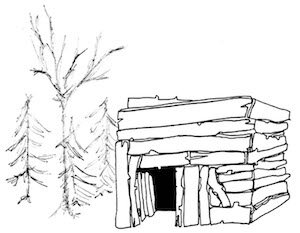One Two Three
Directed by Vincent Meessen, Three-channel digital video installation (looped), 35', surround sound, acoustic panels, coloured textile, wooden frames, stools, carpet, French and Kikongo, subtitled in English. Shot in Kinshasa, DR Congo, 19 -25 January 2015. Courtesy the artist and Normal, Brussels, 2015.
"A spectre is haunting the world: the Situationist International". It was with this allusion to the opening sentence of the Communist Manifesto that the Situationist International, a revolutionary movement and the last international avant-garde movement of Western Modernity, provocatively inscribed itself into future history. The Situationist International has left an imprint as radical as it is indelible on the worlds of ideas and forms. It fundamentally changed the understanding of the relationship between art, politics and daily life, in its instrumental and decisive role during the events of May 68, and in its critique and detournement of forms of market spectacle. Reviled, art was its first target, and we know that ever since, artists have continued to debate and struggle with this critical heritage.
In One.Two.Three, Vincent Meessen begins by circumventing the trap of Situationist mythology, in which Guy Debord has been consecrated as the hero and epicentre of a revolution. Instead, the work revisits a part of the history of this movement which to this day has been ignored. The starting point for the work is the discovery of the lyrics to a protest song that Congolese Situationist Joseph Mbelolo Ya Mpiku, composed in May 1968, in the archives of the Belgian Situationist Raoul Vaneigem. Working with Mbelolo and young musicians in Kinshasa, Vincent Meessen has produced a new rendition of the song. The fragmented cinematographic display of the work offers a spatial translation of this collective arrangement of subjectivities.
The multi-coloured labyrinth of Un Deux Trois, the club that was once home to the world-famous OK Jazz orchestra led by Franco Luambo, a key figure of artistic modernity in the Congo, offers the perfect setting for a musical dérive. Against the background of Congolese rumba, a popular and hybrid genre par excellence, threatened vernacular architecture and revolutionary rhetorics of the past, the film puts to music the narrative of unexpected meetings and one of the forms that resulted from it: Mbelolo’s song.
CREDITS
Directed by Vincent Meessen
featuring M’Belolo Ya M’Piku
and the voice of Raoul Vaneigem
Music performed by:
Judith Kadiela (bass & vocals), Dolicia Keta (solo guitar & vocals), Rossety Mampuya
(rhythm guitar & vocals), Huguette Tolinga (percussion & vocals), Claude Ndara (ndara)
Music director: Vincent Kenis
Spoken word: Orakle Ngoy
Assistant film director: Kristin Rogghe
Director of photography: Vincent Pinckaers
Assistant camera: Artur Castro Freire
Sound recording & design: Laszlo Umbreit
Dolly: Fabrice Malabar Kalonji
Editing: Inneke Van Waeyenberghe
Assistant editing: Elise Pascal
Digital effects: Yishaï Gassenbauer
Subtitles: Erik Lambert
Color grading & mastering: Paul Millot
Produced by: Normal asbl
Executive production: Jubilee vzw
Production manager: Edoardo Cimadori
Coordinator Jubilee: Katrien Reist
Commissioned by:
Fédération Wallonie-Bruxelles and Wallonie-Bruxelles International
With the support of:
Willame Foundation, Flanders - State of the Art, Wiels, Africalia, Graphoui, CWB Kinshasa, Kvadrat
One.Two.Three is part of the project Personne et les Autres, with work by Vincent Meessen and international guests, to be presented at the Belgian Pavilion of the 56th Venice Biennale.
more about Jubilee
more about Personnes et les autres



